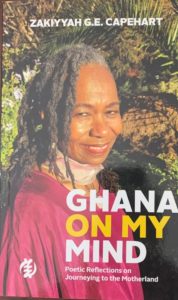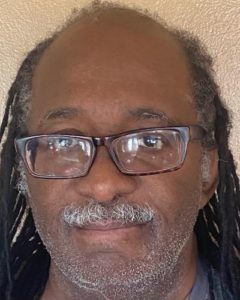|
Getting your Trinity Audio player ready...
|
Reading Time 3 mins
March 4, 2022
We celebrated Black History Month against the backdrop of a trail of tears: bomb threats to Historically Black Colleges and Universities, the constant litany of  school district boards in Kentucky, Florida, and other states banning books by authors of color. And some states even enacted legislation against the teaching and discussion of institutional racism and the 1619 Project in schools.
school district boards in Kentucky, Florida, and other states banning books by authors of color. And some states even enacted legislation against the teaching and discussion of institutional racism and the 1619 Project in schools.
Interestingly, the enemies of social justice and progress are acting on deep-seated prejudice as part of an eternal desire to further marginalize our contribution as part of the American mosaic and erase our presence, both physically and intellectually. Perhaps now is the time to rediscover and acknowledge the significance of the Akan word Sankofa in our quest to underscore our centrality and honor Black History year-round.
Originating with the Akan people of Ghana, Sankofa means “to go back and get it.” It can be represented symbolically by a bird with its head turned backward while its feet face forward, carrying a precious egg in its mouth. Sankofa power centers on the notion: knowing one’s history and heritage, knowing your current self, the world around you, and how to better both are central to an enlightened life that champions advocacy and seeing self as a change agent. In the present climate of unrest, Sankofa is a sorely needed concept. What better way for people of African descent to focus on renewal and change than embracing Sankofa.
In 2019 to commemorate 400 years since the first enslaved Africans arrived in America, Ghana hosted The Year of Return. More than a half-million people traveled to Ghana and other parts of Africa during that year. In addition, people of African descent across the diaspora journeyed to the continent to retrace their roots, rethink their identity, and connect with their brothers and sisters.
One of those returnees, Zakiyyah G.E. Capehart, celebrated her Sankofa experience in her reflective collection of poems and prose, aptly titled Ghana On My Mind, Poetic Reflection’s on Journeying to the Motherland. Reading her poems made me reflect on my journey to Ghana more than twenty years earlier and how life-changing and eye-opening the trip was in grounding my sense of self and cultural identity.
Ms. Capehart traveled to Ghana as part of a group of poets of the West Oakland To West Africa Poetry Exchange (WO2WA) to meet with Ghanaian poets and collectively participate in a Poetry Slam. Her journey is one of remembrance, rejuvenation, and healing. It is also a spiritual pilgrimage to connect to the people and the land of her ancestors. In the poem “Greeted by a Rainbow,” she captures the wonder, warmth, and welcoming spirit of the people:
“I come from a place/where greeting is paramount…./
I come from a place where/Sunlight moonlight and starlight/are etched on the faces of the people/
where greeting is a way of life/, it begins and never ends.”
Capehart shares the sounds and sights of Ghana with the reader as she reflects through her poignant verse her visits to a fishing village, a marketplace, and the slave forts of Cape Coast and El Mina.
Her poem, “My Path,” written after she visited the river where ancestors took their “last bath” before they boarded the slave ships, is a profound evocation of pain and suffering that echoes Ralph MacDonald’s “The Path” and Nina Simone’s “Strange Fruit.” In “My Path,”
“emotions run up and down my spine/like the growth of grapes on the vine/
symbolic of veins/ telling the stories of/ hidden suppression/ unveiling lost
centuries/ unmasked and exposed.”
Capehart’s Ghana on My Mind is a testament of love, highlighting Ghana’s culture, customs, scenery, and beautiful and friendly people. It is a must-read not just during Black History Month or Women’s History Month but sustenance for all seasons. Journeying to the Motherland will inspire others to experience their own Sankofa moment while resisting efforts to marginalize us and our history.
_ _ _ _ _ _
 Lennel George, a retired NYC High School Principal who teaches at C.W. Post, Long Island, is a Kittitian with a deep interest in Afro Caribbean Literature and has traveled throughout the region, including Cuba.
Lennel George, a retired NYC High School Principal who teaches at C.W. Post, Long Island, is a Kittitian with a deep interest in Afro Caribbean Literature and has traveled throughout the region, including Cuba.
